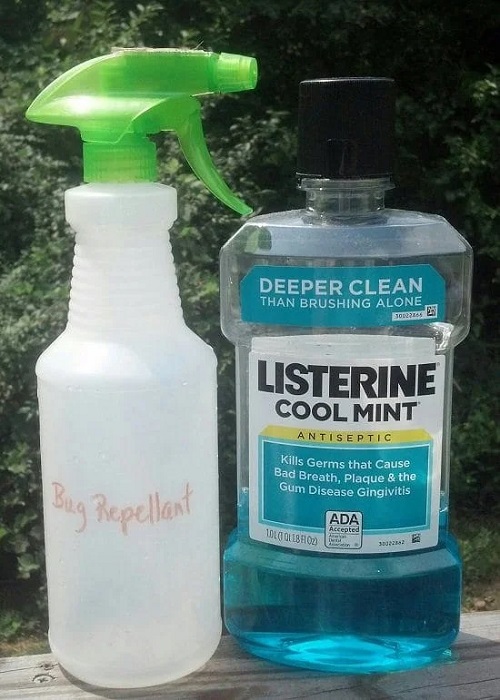If you think mouthwashes are only for your oral hygiene, this article will break this notion with some amazing Listerine uses for indoor plants!
Loaded with all sorts of antifungal and antibacterial properties, Listerine can be more than your oral care companion. In fact, its uses for your indoor plants will keep you wondering about the myriad ways it can help us!
Listerine Uses for Indoor Plants
1. Prevents Fungus and Mold from Plants
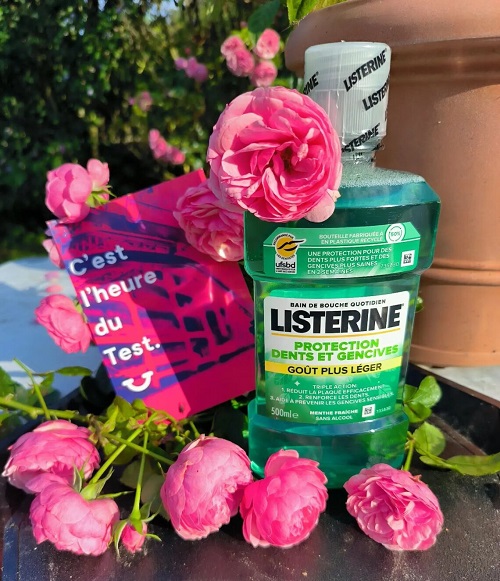
In the warm, humid corners of your home where plants love to thrive, so too do mold and fungus. Using Listerine’s powerful antifungal properties can keep these unwanted guests at bay, especially as it is infused with ingredients like eucalyptol and menthol.
To create an inhospitable environment for fungi, dilute one teaspoon of Listerine in a quart of water and mist it over your plants’ leaves and surrounding soil. This could be a quick fix to those pesky pests without resorting to rather harmful chemicals of market-based fungicides.
2. Fights the Common Pests
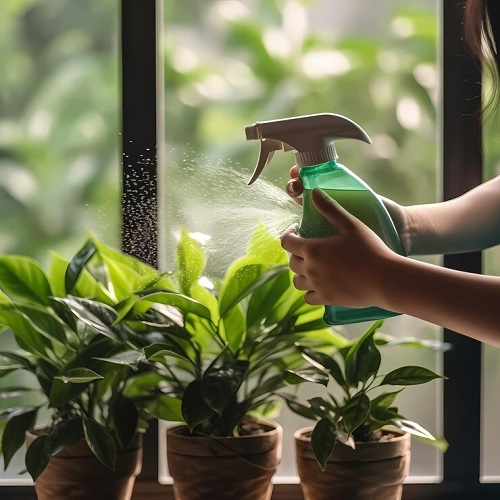
Nobody likes pests in their plants, and this mouthwash offers a gentle yet effective solution. The herbal oils in Listerine, particularly eucalyptol, act as natural pesticides. It does the same work as that of a fungicide but requires a potent solution. Mix one part of listening in three parts of water and spray it on the affected areas. Look for the undersides of the leaves and petioles for major infestation, and wipe it off with a clean cloth for the best results.
The unique blend of alcohol and essential oils in Listerine not only has strong antimicrobial properties but also acts as an effective disruptor to the life cycle of common plant pests like aphids and mealybugs. These pests, which typically feed on plant sap, find the altered surface environment less inviting.
Additionally, when sprayed on foliage, it forms a thin physical barrier that prevents pests from settling on the leaves. It also interferes with the feeding and reproductive behaviors of existing pests, making it difficult for them to reproduce on your plants.
3. Promotes Foliage Shine
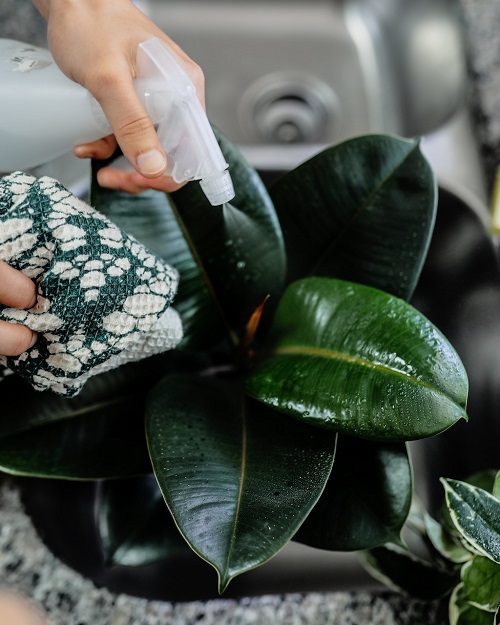
It can also be used to enhance the appearance of plant leaves. Its antifungal properties help keep leaves free from mildew and mold, while its cleaning agents can remove dust and grime, restoring natural shine. Mix the mouthwash with equal parts of water and mist the leaves. Then wipe them out with a clean cotton cloth, improving the plant’s overall ability to photosynthesize more efficiently.
4. Acts as a Trap for Flying Insects
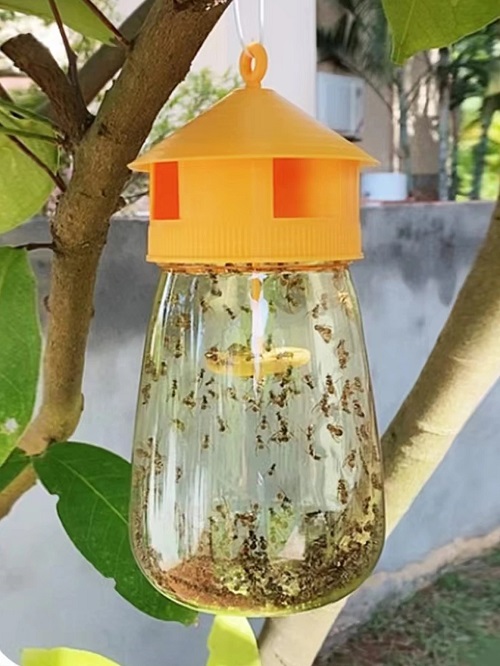
The robust scent of Listerine is a fantastic deterrent for various flying insects. Simply mix Listerine with water (about one part Listerine to three parts water) and place small containers of the solution near your plants.
This setup is particularly effective during the warm months when pests are most active.
5. Aids in Healthy Plant Propagation
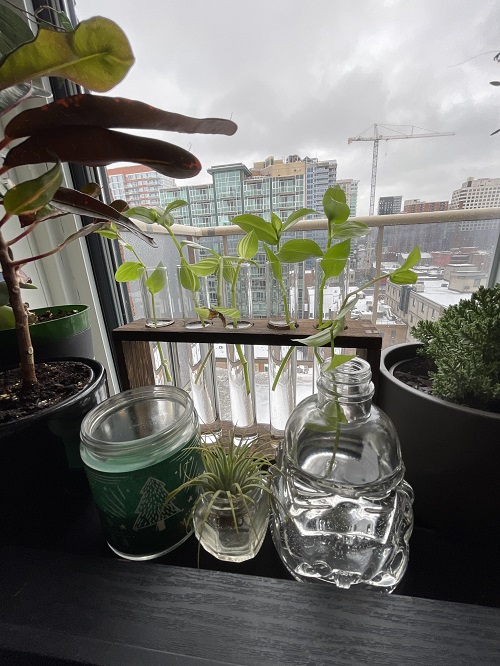
When you’re ready to propagate, Listerine can help ensure your new cuttings grow healthy and strong. Before planting, dip the cut ends of your cuttings in a diluted Listerine solution. This quick dip helps ward off fungal infections that can stunt new growth. It’s a simple step that can lead to faster, healthier root development, giving your new plants the best start possible.
6. Disinfectants Gardening Tools
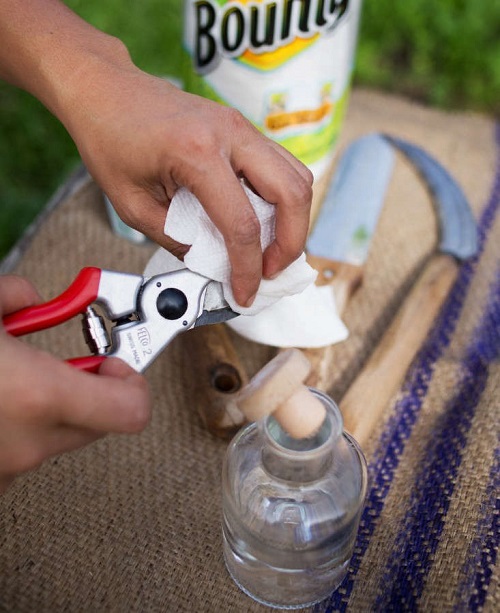
Keeping your gardening tools clean is important, especially if you’re handling diseased plants. Regularly wiping your tools with a Listerine solution can kill pathogens that might be clinging to blades and handles, preventing them from spreading to healthy plants. Make it a habit to clean your tools with Listerine after each use—it’s a quick and effective way to maintain tool hygiene.
7. Neutralizes Compost Odor
No one likes a smelly compost pile. To keep odors at bay, spray your compost with a Listerine solution. This not only helps control odors but also assists in breaking down organic matter more efficiently by combating decay-causing microbes. Your composting process becomes not just more bearable but also more effective.

